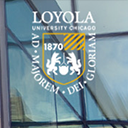Understanding the Expected and Achieved Advanced Beginner Registered Nurse Competencies During COVID and Beyond
Purpose
The aim of this study was to describe variance between the advanced beginner Registered Nurses’ (ABRN) perceived level of competency and the nurse leaders’ expectations of the ABRN.
Background and significance
The COVID-19 pandemic impacted delivery of nursing education by limiting access to hands-on learning opportunities, but the expectations of ABRN performance did not change. As a result, nurse leaders raised concerns about the level of ABRN competence. With the ongoing demands of healthcare post-COVID-19, and a greater volume of ABRNs at this organization, there was a need to understand realistic expectations of the new nursing workforce.
Theoretical/Conceptual framework
The Benner Theory of Novice to Expert guided this project.
Method
A modified Hyun Nurse Competency Survey was distributed to nurse leaders and ABRNs to assess ABRN competency related to evidence-based nursing practice, patient-centered nursing practice, and professional nursing practice.
Results
Twenty ABRNs (female (65%); highest education BSN (65%) and 19 unit leaders (female (84.2%); highest education MSN (57.9%)) completed the survey. ABRNs’ reported level of competence was higher than nurse leaders anticipated. The nurse leaders demonstrated wide variability in their expectations.
Conclusions
Nurse leaders can better support ABRNs by establishing consistent goals and prepare ABRNs to receive feedback on performance as a component of growth, rather than a punitive process.
Understanding the Expected and Achieved Advanced Beginner Registered Nurse Competencies During COVID and Beyond


